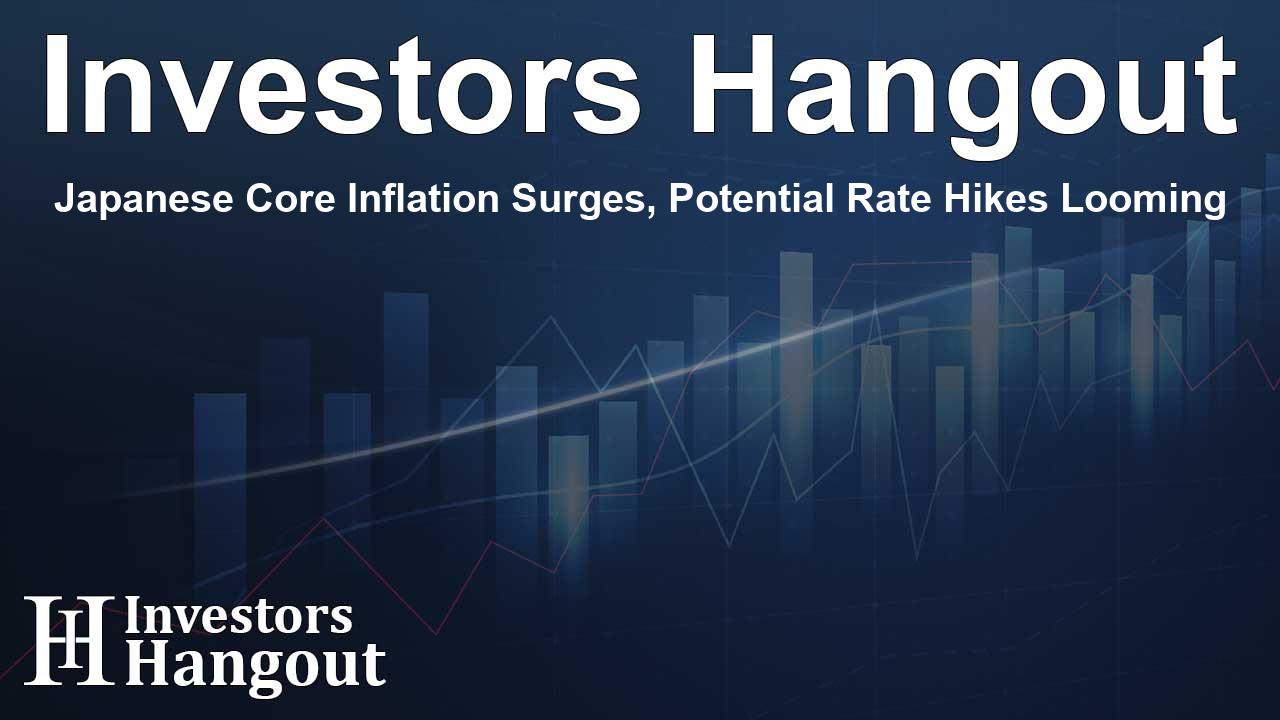Japanese Core Inflation Surges, Potential Rate Hikes Looming

Consumer Price Index Trends in Japan
Recent statistics show that Japanese consumer price index (CPI) inflation has slightly exceeded expectations this month. This uptick in core inflation is notable as it suggests monetary policies may need to be adjusted moving forward.
Details on the Core CPI Increase
The national core CPI, which excludes volatile fresh food prices, registered a year-on-year growth of 2.3%. This figure surpasses the anticipated increase of 2.2% and reflects a small decline from the previous month when it reached 2.4%.
Energy and Food Prices
A distinct core inflation metric that omits both energy and fresh food costs also showed a rise to 2.3%, up from 2.1% in the prior month. This measure is critical for the Bank of Japan (BOJ) as it assesses the underlying inflation trends crucial for economic planning and policy formulation.
Variation in Headline CPI
On the contrary, the headline CPI inflation saw a decline to 2.3% from a higher rate of 2.5% in the preceding month. This fluctuation illustrates the complexities of the inflation landscape in Japan.
Factors Contributing to Inflation
The gradual increase in inflation throughout the year can be attributed to robust domestic consumption. This increased consumption follows successful negotiations by labor unions that resulted in significant wage hikes earlier. This rise in wages directly influences consumer spending patterns, thus potentially raising inflation levels.
Governmental Economic Measures
While Japan experienced a slight dip in inflation rates recently due to decreasing energy prices and the implementation of government subsidies on utility expenses, latest data indicates these measures had a limited effect in curbing inflation overall.
Implications for Monetary Policy
The persistent inflation figures suggest a need for the BOJ to consider further interest rate hikes. The central bank has already increased rates twice during the year, indicating a proactive approach to managing inflation.
Political and Economic Stability
Political uncertainties within the country add an additional layer of complexity concerning future rate adjustments. Despite these uncertainties, BOJ Governor Kazuo Ueda has reassured stakeholders that interest rates will continue to rise as long as inflation consistently outpaces the 2% target. This promise signals a commitment to leveraging monetary policy effectively to stabilize the economy.
Frequently Asked Questions
What is the current state of inflation in Japan?
Current data indicates that Japan's core CPI has risen to 2.3%, exceeding expectations and remaining above the BOJ's target.
How does core inflation differ from headline inflation?
Core inflation excludes volatile items such as fresh food and energy prices, offering a clearer view of underlying inflation trends.
What are the implications of rising inflation for interest rates?
Persistently high inflation may lead the BOJ to enact further interest rate hikes to maintain economic stability.
How have recent wage increases affected inflation?
The rise in wages due to labor union negotiations has contributed to increased consumer spending, thereby affecting inflation rates.
What could political uncertainty mean for the BOJ's decisions?
Political instability might cause delays in implementing anticipated rate hikes, even as inflation guidelines remain steady.
About Investors Hangout
Investors Hangout is a leading online stock forum for financial discussion and learning, offering a wide range of free tools and resources. It draws in traders of all levels, who exchange market knowledge, investigate trading tactics, and keep an eye on industry developments in real time. Featuring financial articles, stock message boards, quotes, charts, company profiles, and live news updates. Through cooperative learning and a wealth of informational resources, it helps users from novices creating their first portfolios to experts honing their techniques. Join Investors Hangout today: https://investorshangout.com/
Disclaimer: The content of this article is solely for general informational purposes only; it does not represent legal, financial, or investment advice. Investors Hangout does not offer financial advice; the author is not a licensed financial advisor. Consult a qualified advisor before making any financial or investment decisions based on this article. The author's interpretation of publicly available data shapes the opinions presented here; as a result, they should not be taken as advice to purchase, sell, or hold any securities mentioned or any other investments. The author does not guarantee the accuracy, completeness, or timeliness of any material, providing it "as is." Information and market conditions may change; past performance is not indicative of future outcomes. If any of the material offered here is inaccurate, please contact us for corrections.